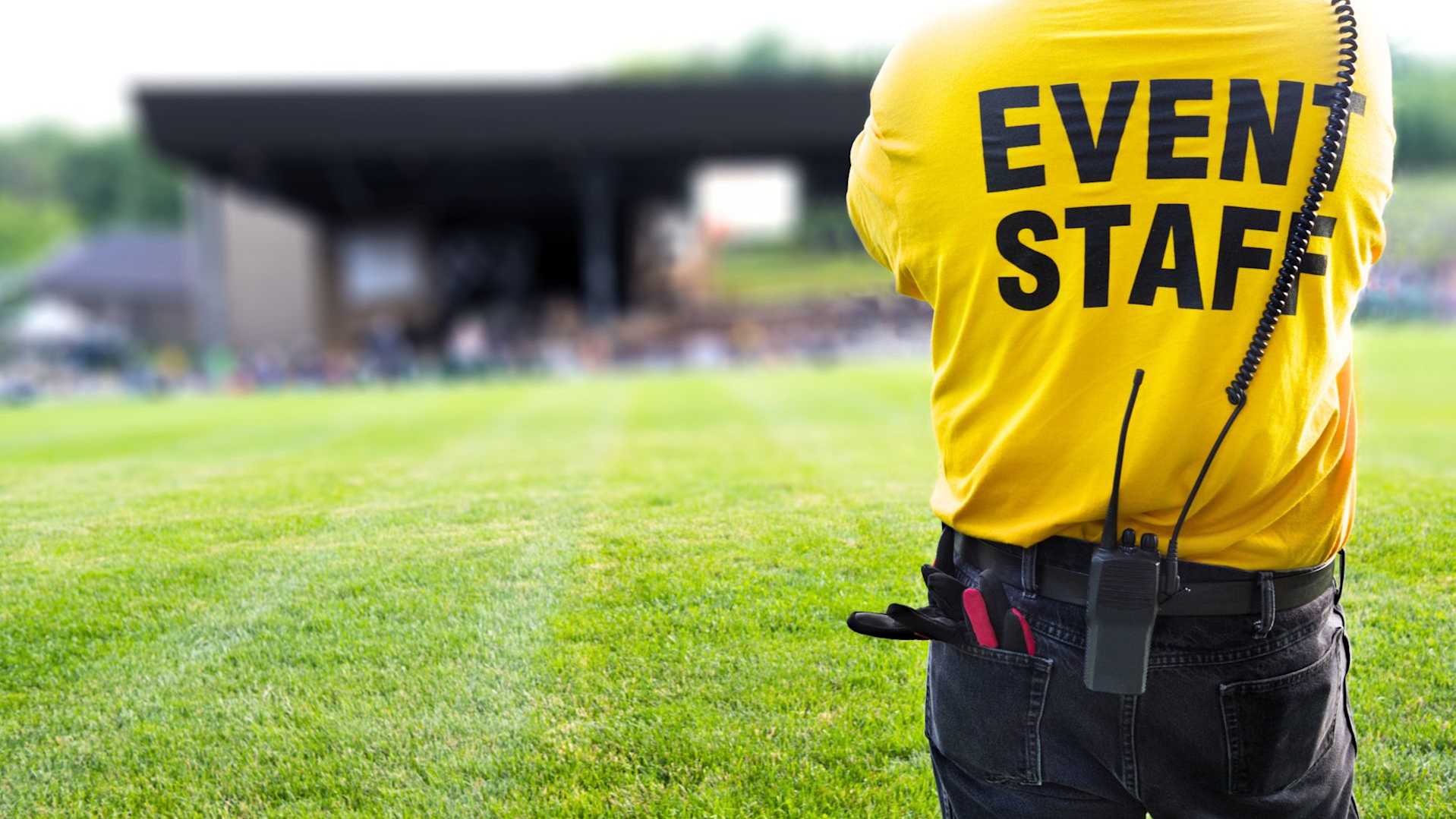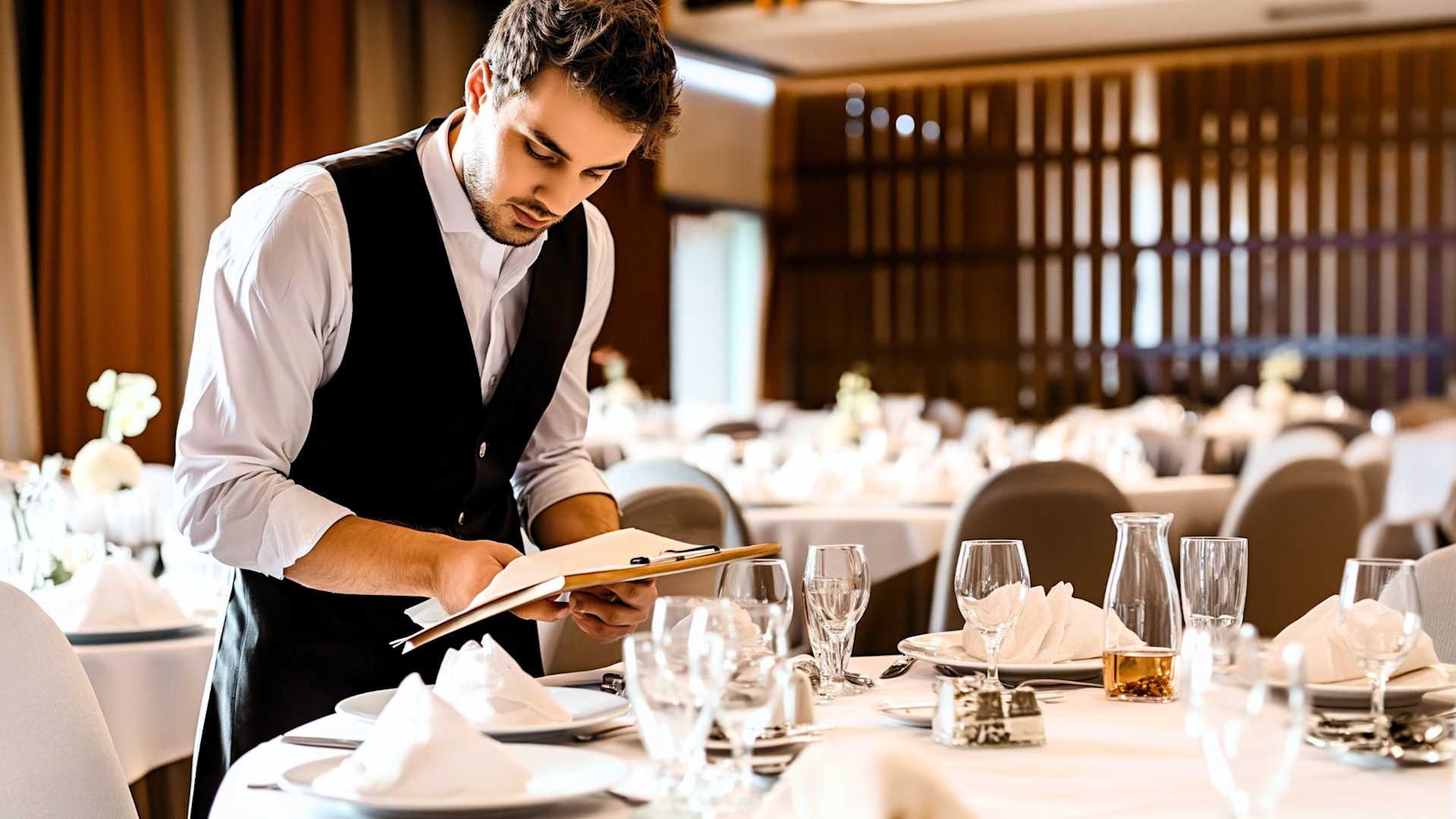Balancing Quantity and Quality: Staffing Considerations for Large Events

Tags
Large-scale events—think conferences, festivals, concerts, galas, and sporting events—bring together hundreds or even thousands of people. With that many guests, even the best plans can unravel if your staffing strategy isn’t rock solid. Successful staffing for large events requires more than just filling headcount; it’s about finding skilled professionals who can handle complex logistics, provide excellent service, and keep the experience seamless from start to finish.
Key staff roles for large events include event managers, coordinators, food and beverage staff, security, parking personnel, setup/clean-up crews, AV technicians, and guest services. To build the right team, you’ll need a clear recruitment, onboarding, and training strategy—and a trusted staffing partner who can connect you with qualified workers when you need them most.
This guide breaks down how to balance quality and quantity when staffing for large events, ensuring your team is equipped to deliver a smooth and memorable experience.
What counts as a large-scale event?
Large-scale events generally host 300+ guests and require significant planning, coordination, and specialized staff. These events often involve multiple moving parts—from food service and entertainment to safety and logistics—that demand both a sizable team and skilled workers.
Common examples of large events include:
Multi-day conferences or conventions
Music or food festivals
Sporting events
Corporate or charity galas
Large weddings with hundreds of guests
Planners often ask: “What is considered a large-scale event?” and “How many staff do I need for a large event?” The answer depends on the scope, but in every case, the challenge remains the same: balancing sufficient staff to cover demand without compromising quality.
Why balancing quantity and quality matters.
When it comes to large event day staffing, it’s tempting to think that more people equals better coverage. But that’s not always true. Having 50 untrained workers on hand won’t serve your guests as well as 30 highly skilled professionals who know exactly what to do.
Skilled staff contribute to smooth operations, better guest experiences, and fewer errors. But even the most talented team can’t succeed if they’re spread too thin. The real key is striking the right balance: enough hands to cover demand, with the training and expertise to perform at a high level.
Planners often search for:
“How do you staff large-scale events?”
“What’s the ideal staff-to-guest ratio for events?”
“How can I balance quality and quantity in event staffing?”
The short answer: Combine full-time, core staff with temporary or on-demand professionals—such as those available on Qwick—who can scale your team up or down as needed. This flexibility not only keeps events running smoothly, but it also helps manage the budget by avoiding overstaffing when demand is low.
Key staffing roles for large events
Event manager
The event manager serves as the central hub for event operations, overseeing logistics, coordinating roles, and resolving problems throughout the day. For especially large or multi-venue events, consider having multiple managers to divide responsibilities.
Event coordinators and assistants
Supporting the event manager, coordinators help with execution—responding to staff and vendor questions, troubleshooting issues, and keeping operations on track. A common rule of thumb is one coordinator per 100–150 guests.
Food and beverage staff
Few things impact guest experience more than food and drink. Depending on the format, you may need:
Servers and bussers (roughly 1 per 25 guests for sit-down meals)
Bartenders and barbacks (1 per 50 guests)
Chefs, food preparers, or catering staff
Catering is one of the most labor-intensive areas of large event staffing, and finding staff with the right skills and proper certifications is very important.
Security and crowd control
Safety is critical at large scale events. Security personnel ensure smooth guest entry, maintain order, and respond to emergencies. Plan for at least one security guard per 100–200 attendees, adjusting for the risk level and whether alcohol will be served.
Setup and clean-up crew
These unsung heroes ensure the venue is functional, clean, and safe both before and after the event. A common benchmark is one crew member per 500 square feet of event space, with additional personnel required for quick turnarounds.
Audio/visual technicians
From speeches to live performances, AV technicians keep the show running. For larger events with multiple stages or breakout rooms, multiple technicians may be necessary.
Guest services and hospitality staff
Registration desks, information booths, and VIP lounges all require trained staff to guide and assist attendees. A good general ratio is one hospitality staff member per 100 guests.
Valet and parking attendants
Parking is the first impression guests have of your event, and things can get disorganized or backed up quickly without a solid plan and attendants to direct traffic. Plan for one attendant per 50 vehicles to minimize congestion and frustration.
Staffing ratios for large events
While every event is unique, here are baseline staffing ratios to guide planning:
1 bartender per 50 guests
1 catering staff member per 25 guests (for sit-down service)
1 coordinator per 100–150 guests
1 security guard per 100–200 guests
You may be wondering: “What’s the best staffing ratio for large events?” The answer depends on format (banquet vs. buffet, indoor vs. outdoor) and duration (single-day vs. multi-day). Use the above ratios as a starting point, then adjust to your event’s specific needs.
Prioritizing quality: training and onboarding
Quantity ensures coverage, but quality ensures excellence. Untrained staff can create more problems than they solve. That’s why pre-event orientations and clear onboarding are essential:
Share event goals, expectations, and service standards
Cover safety and emergency protocols
Train staff in customer service and role-specific skills
Pair new staff with mentors or experienced team members
Planners often search for: “How do I train staff for large events?” and “What should be included in large event staff orientation?” The answer is simple: set clear expectations so everyone knows their role and feels empowered to deliver.
Overcoming common staffing challenges
Staffing large-scale events isn’t easy. Common challenges include:
High turnover among temporary staff
Unreliable attendance or punctuality
Shortage of specialized skills
Inconsistent performance
To combat these challenges, you can:
Offer competitive pay and incentives
Partner with a reliable staffing solution like Qwick
Build a pool of trusted temporary workers you can rehire
Use performance ratings to identify top talent
Planners often wonder: “How do I handle staffing challenges for large events?” The solution is to combine strong internal processes with the right staffing partners that allow you to be agile.
The role of technology in event staffing
Technology makes large event staffing smarter and more efficient. Consider:
Staffing platforms (like Qwick) to connect with vetted professionals.
Data and analytics to forecast staffing needs based on past events.
Communication tools to send real-time updates and reassign roles quickly.
Event planners often ask: “What technology helps with staffing for large events?” The answer: platforms that simplify scheduling, improve communication, and ensure quality hires.
Take your large event to the next level with Qwick.
Staffing for large events requires a careful balance of quantity and quality. With Qwick, you don’t have to sacrifice either. Our platform connects you to a network of vetted hospitality professionals—bartenders, servers, chefs, event help, and more—who are ready to step in and deliver exceptional service.
Whether you’re staffing a festival, a corporate gala, or a multi-day conference, Qwick makes large event day staffing seamless. Simply post a shift, match with top-rated talent, and build your own pool of trusted professionals you can re-book for future events. Qwick even has special features designed just for event managers to make managing your shifts easier!
Don’t leave your staffing to chance. Start posting shifts with Qwick today and set your next large-scale event up for success.


